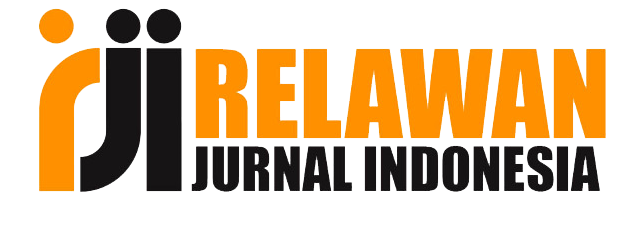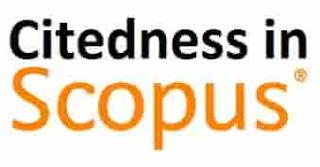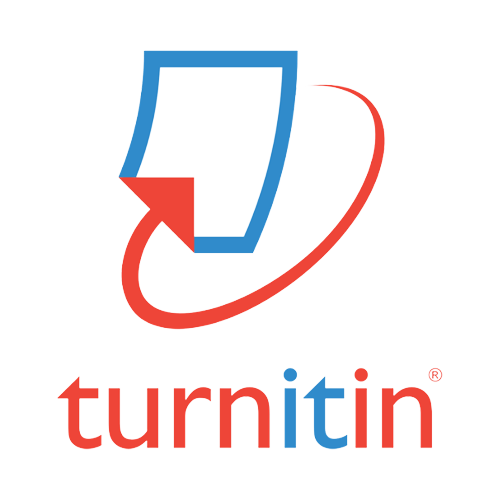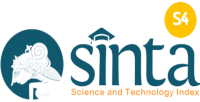The errors of EFL students' TOEFL iBT integrated writing task
DOI:
https://doi.org/10.33474/j-reall.v1i2.6860Keywords:
error analysis, TOEFL iBT, integrated writing task, summarizingAbstract
Reading, Listening, Speaking and Writing are four skills tested in TOEFL iBT. The two types of questions in the writing task of TOEFL iBT are independent and integrated. Focusing on the integrated task in which test-takers require to read a passage, to listen to a lecture related to the topic of the reading and to summarize the listening by explaining how it relates to the points in the reading (Peterson, 2007:8). This research analyzed the errors of students' writing production of integrated task. The research samples of the task were taken from 7 (seven) TOEFL iBT candidates. Examining 14 integrated tasks, this study categorized the errors into three major categories: grammar, mechanics, and content errors. This study found that most frequent grammatical errors were in the verb (22%),
agreement (20%), and followed by a noun (14%). The findings of mechanic errors are mostly in the use of capitalization at the beginning of a sentence. In the part of punctuation errors, it was found that the omission of a comma as a frequent error. The last results are content errors which consist of plagiarism; own idea addition; question addressing in which if the test takers’ response focuses on one of the two passages and completely ignores the other one; and missed information in which testtakers are unable to absorb key information from reading and listening passage. It is expected that these findings enable TOEFL iBT tutors to recognize candidates' problems and improve their teaching approach to reach better results.
References
Al-Khresheh, M.H. (2016). A Review Study of Error Analysis Theory. International Journal of Humanities and Social Science Research, 2, 49-59.
Cumming, A., Grant, L., Mulcahy-Ernt, P., & Powers, D. E. (2005). Monograph Series: A teacher-Verification Study of Speaking and Writing Prototype Tasks for a New TOEFL. ETS TOEFL
Educational Testing Service. (2012). The Official Guide to the TOEFL TEST. Fourth Edition. McGraw Hill Education.
Ellis, R. (2008). The study of second language acquisition (2nd ed.). UK: Oxford University Press.
Erdoğan, V. (2005). Contribution of error analysis to foreign language teaching. Mersin University Journal of the Faculty of Education, 1(2), 261-270.
Fink, L., et al. (n.d) How to Ace TOEFL Writing, p.10. https://toefl.magoosh.com/toefl-writing-ebook/
Gallagher, Nancy (2016). DELTA's Key to the TOEFL iBT. Complete Skill Practice. Delta Publishing Company.
Keyvanfar, A. and Khoshkhou, R.V. (2015). Error Taxonomy of TOEFL iBT Writing: An Iranian Perspective. Journal of Language and Translation Vol.5, No.2 (10), pp.61-75.
Khansir, A.A. (2012). Error Analysis and Second language Acquisition. Theory and Practice in Language Studies, Vol. 2, No. 5, pp. 1027-1032, May 2012 © 2012 ACADEMY PUBLISHER Manufactured in Finland. DOI:10.4304/tpls.2.5.1027-1032
Lambert V, Lambert C. Qualitative Descriptive Research: An Acceptable Design. Pacific Rim International Journal of Nursing Research [Internet]. 1 [cited 4Dec.2019];16(4):255-6. Available from: https://www.tci-thaijo.org/index.php/PRIJNR/article/view/5805
Munadia (2016). Thesis: An Analysis of EFL Students' Difficulty in the TOEFL structure abd written expression Section. The Faculty of Education and Teacher Training. Ar-Ranity State Islamic University, Darussalam, Banda Aceh.
Nassaji, H. (2015) Language Teaching Research: Qualitative and Descriptive Research: Data Type versus Data Analysis Vol. 19(2) 129-132. sagepub.co.uk/journalsPermissions.nav DOI: 10.1177/1362168815572747 ltr.sagepub.com
Ohkubo, N. (2009). Validating the integrated writing task of TOEFL internet-based test (iBT): Linguistic analysis of test-takers' use of input material. Melbourne Papers in Language Testing, 14(1), 1-31.
Ospina, Sonia (2009). Qualitative Research. Robert F.Wagner Graduate School of Public Service. New York University.
Peterson (2007). Peterson's Master TOEFL Writing Skills. A Nelnet company.
Rilcy, R. And Wyatt, R. (2009). Achieve TOEFL iBT: Test-preparation guide. Marshal Cavendish Education.
Septiana, A. R. (2020). The indonesian grammatical interference on EFL students' writing. Journal of Research on English and Language Learning (J-REaLL). https://doi.org/10.33474/j-reall.v1i1.5610
Suhartoyo, E. (2017). The Importance of Critical Thinking Competences: An Investigation of Students' Writing Experiences. International Seminar on Language, Education, and Culture.
Zareva, A. (2005). What is new in the New TOEFL-iBT2006 test format? Electronic Journal of Foreign Language Teaching, 2, 45-57. Retrieved June 29, 2010, from http://e-flt.nus.edu.sg/ Propell Workshop for TOEFL IBT. English Language Learning. Teacher Workshop. ETS. https://www.ets.org/toefl/teachers_advisors/propell_workshop
Downloads
Published
How to Cite
Issue
Section
License
Copyright (c) 2020 Nurhayati Irmawan, Rahmi Aulia Nurdini

This work is licensed under a Creative Commons Attribution 4.0 International License.
Authors who publish this journal agree to the following terms:
- Authors retain copyright and grant the journal right of first publication with the work simultaneously licensed under a Creative Commons Attribution License that allows others to share the work with an acknowledgement of the work's authorship and initial publication in this journal.
- Authors can separately make additional contractual arrangements for non-exclusive distribution published by the journal (e.g., publish it in a book), with an acknowledgement of its initial publication in this journal.
- Authors are allowed and encouraged to send their work via online (e.g., in the institutional repositories or their website) after published by the journal.






















